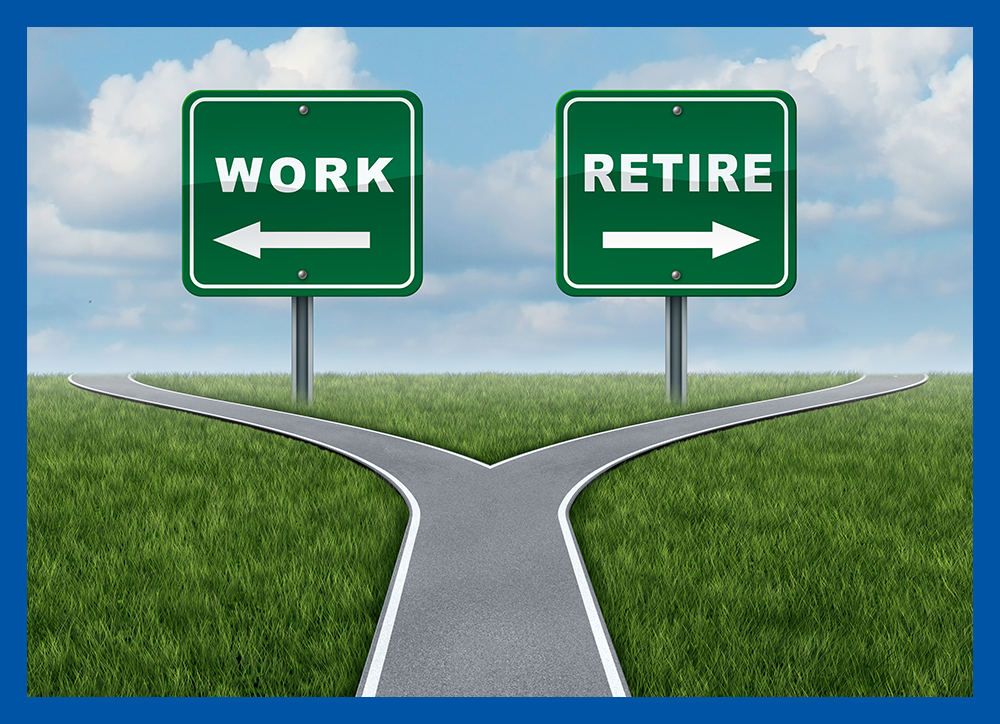MIND THE AGE GAP. Retirement decisions are always complex. But they can be doubly so when a big age gap between spouses means wide variations in retirement dates, life expectancy, health and other factors.
George and Amal Clooney. Ryan Reynolds and Blake Lively. Jay-Z and Beyonce. Apart from their celebrity, these famous couples share significant age gaps: 17 years between the Clooneys, 11 for Reynolds and Lively, and 12 for Jay-Z and Beyonce. An age gap of 10, 15, 20 years or more can lead to differences in retirement dates, health, life expectancy and a host of other factors that need to be considered. While we all know the saying “love knows no age”, it can cause some major confusion when couples start to retire.
Like all couples, money retirement income advisors say age-gap spouses need to secure their financial future by defining their goals, funding their retirement, drafting an estate plan, and managing risk with insurance coverage, as needed. However, it is particularly important to be proactive when one partner is a decade older or more. But age gaps put a lot more pressure on a couple’s finances to support a stable, and likely lengthy, retirement.
If you’re part of such a couple, here are 3 tips to help ensure you both enjoy a financially stable retirement.

It can be hard to do the math realizing that your retirement savings need to last beyond your own life and to include the life expectancy of the younger spouse. So couples with big age differences may need to plan for different retirement options with related implications for portfolio-withdrawal strategies, asset allocation, and Social Security filing.
Working out the correct balance means factoring in the risk level you and your spouse is comfortable with as well any fixed-income assets or other financial products you own, but typically, your equity exposure will need to remain higher than that of a similar retirement-age person with a same-age spouse.
Couples with a large age gap also need to think beyond the obvious items and consider the psychological side of their entry point into retirement. The vision of retirement must be discussed in depth in these relationships so that both spouses’ expectations are met. Working with a financial planner can help navigate these issues and ensure peace of mind that the approach to retirement will result in success for both parties.


While couples usually like to retire together, timing that big life change can be a big issue for couples born a decade or more apart. Finding that perfect balance between working long enough to secure a solid nest egg and retiring with enough time to travel/volunteer/visit family together (when both people are healthy and active) is a tricky feat.
You need to determine when you can both call it quits, safely and cost-effectively. The younger spouse joining the elder in an early retirement puts further pressure on your portfolio to support more years of retiree life – and reduces the opportunity to set aside money from your continuing pay as savings.
For example, Social Security benefits are calculated by averaging your highest 35 years of pay—so if your early retirement means you won’t reach 35 years of earnings, zeros will be filled in for the missing years, taking a bite out of your potential benefit.
To help combat these financial issues, retiring couples with larger age differences may need to plan for different retirement dates – and the potential emotional complications that come with it.

When you reach age 70½, you generally must start taking required minimum distributions (RMDs) from IRAs and employer-sponsored retirement plans. But did you know of a provision in the tax code meant specifically to benefit you?
Couples with at least a 10-year age difference can use a separate RMD calculation table that allows the older spouse to withdraw less than a peer with a similar age spouse. However to reap the benefits, the younger spouse must be the beneficiary on a traditional IRA, 401(k), 403(b) or 457 plan that the older spouse owns.
Plus, the RMD amount becomes smaller the larger the age difference between partners. That makes it possible for more of your money to keep growing, if you don’t need to tap it now for living expenses.

If there is a wide age gap between you and your partner, you definitely need to have the retirement discussion sooner rather than later.
There are many more factors to consider when retiring with a larger spousal age gap; from life insurance and pensions to financial assets and stocks. If you’re feeling overwhelmed at the best course of action to take, CKS Summit Group are here to help.
We design, build, and manage custom retirement portfolios that are fully capable of simultaneously generating stable growth, increasing income, and preservation of principal throughout a client’s lifetime, with only limited downside market risk.
Click here to schedule your complimentary strategy session, or simply call us today on 586-286-5820.



